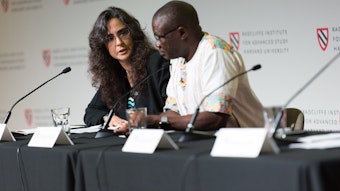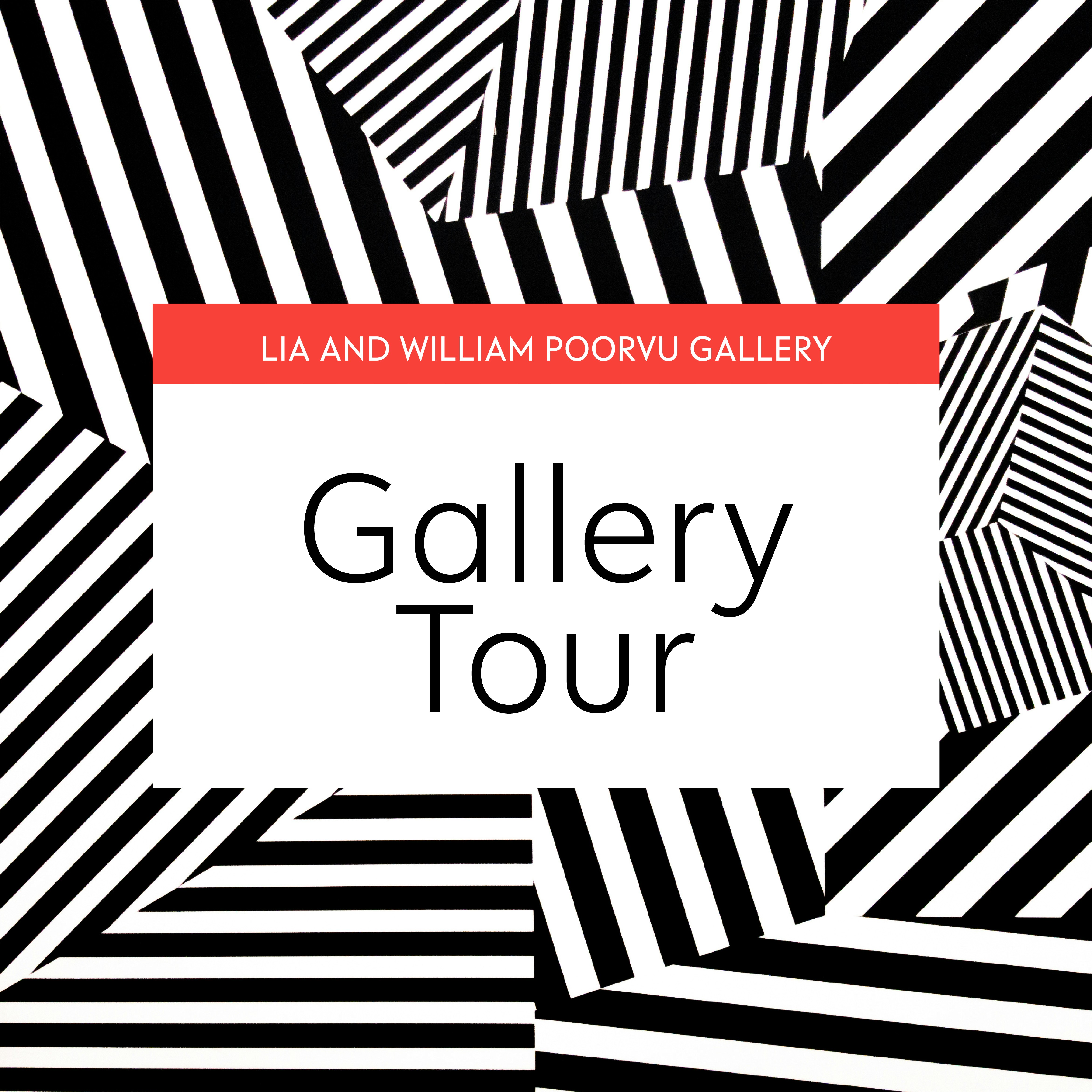The Undiscovered
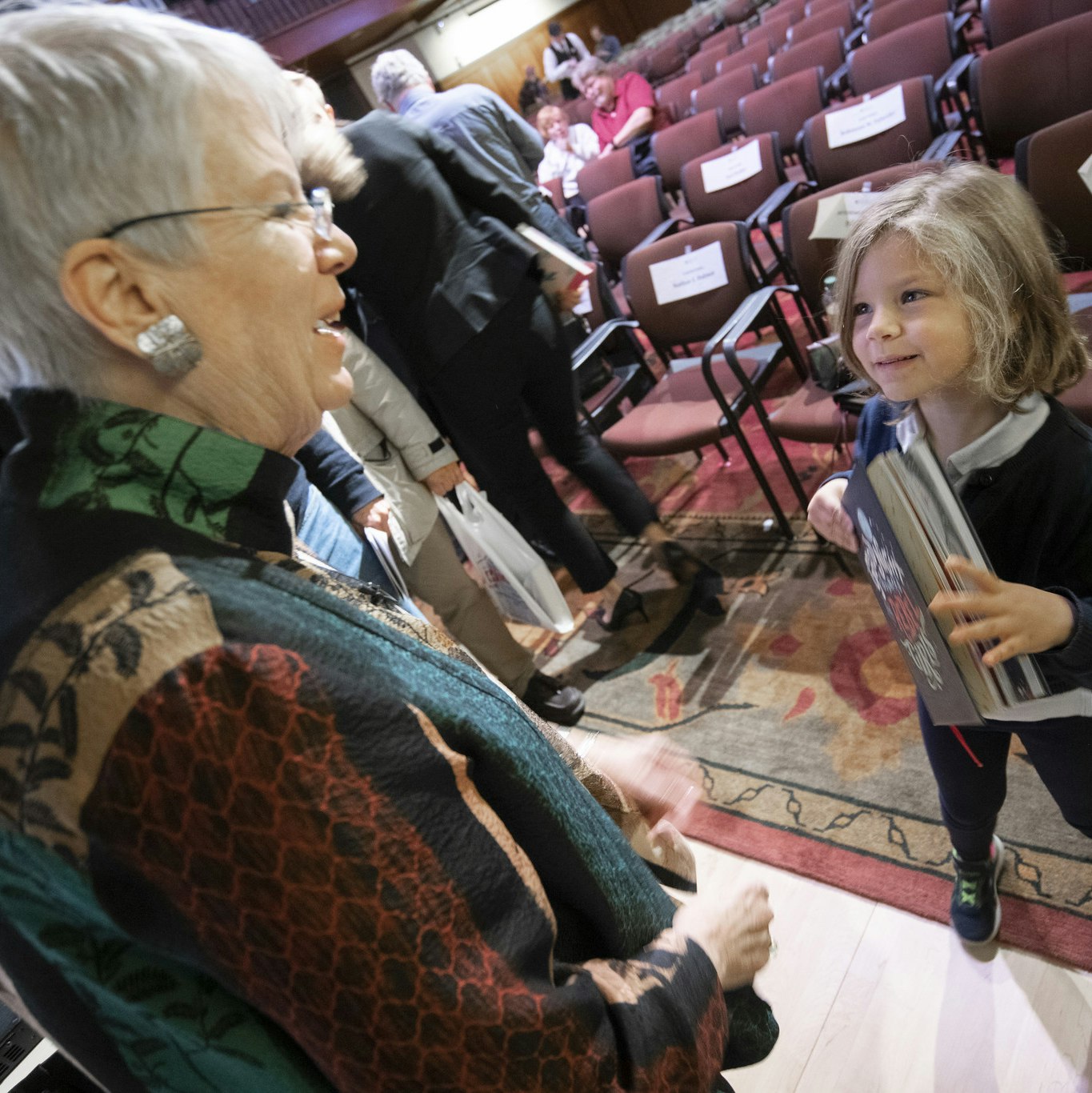
Many great discoveries in science are surprises.
To paraphrase Louis Pasteur, sometimes luck favors the prepared mind, as when Alexander Fleming discovered penicillin by noticing that mold growing accidentally in his lab seemed to kill bacteria. At other times, new instruments offer unanticipated revelations: until Galileo looked at Jupiter with his telescope, he didn’t know it had moons or their importance to our understanding of the solar system. And, occasionally, methodical experiments find exactly the opposite of what they sought to prove. Scientists intending to measure the deceleration of the Universe’s expansion, for example, found acceleration instead.
The 2018 Radcliffe Institute science symposium will focus on how scientists explore realities they cannot anticipate. Speakers from across the disciplines of modern science will present personal experiences and discuss how to train scientists, educators, and funders to foster the expertise and open-mindedness needed to reveal undiscovered aspects of the world around us.
Event Videos
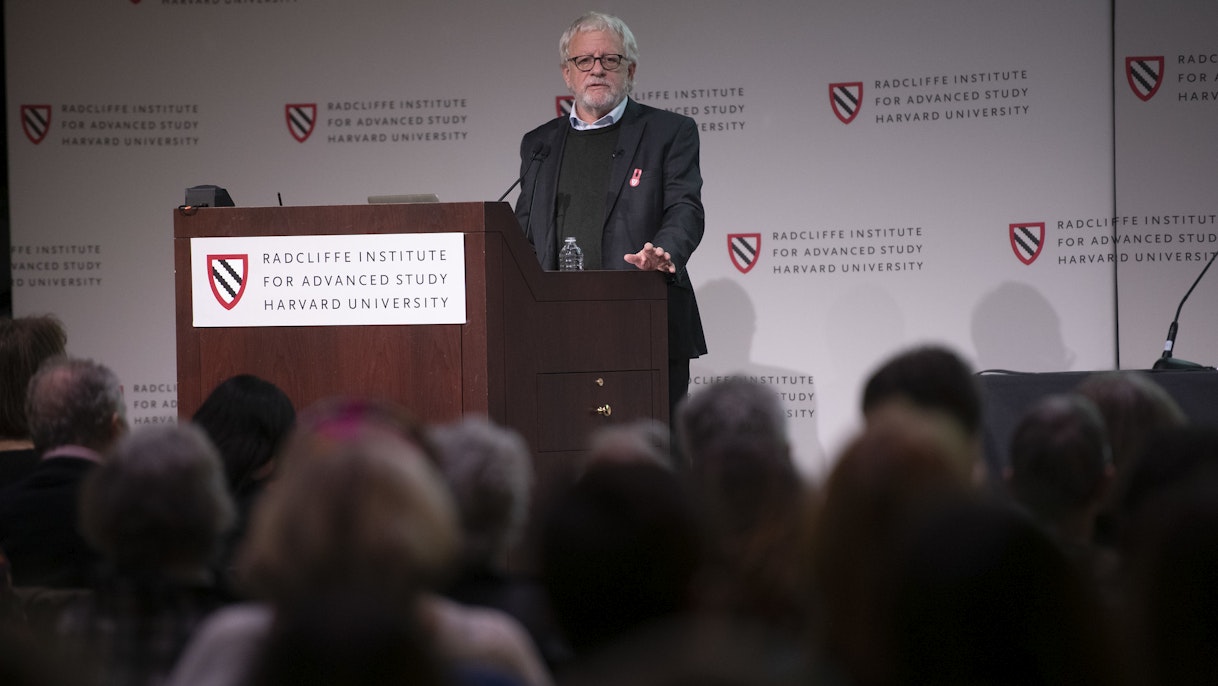
Morning Keynote by Stuart Firestein
WELCOME
Tomiko Brown-Nagin, dean, Radcliffe Institute for Advanced Study; Daniel P.S. Paul Professor of Constitutional Law, Harvard Law School; and professor of history, Harvard Faculty of Arts and Sciences
OPENING REMARKS
Alyssa Goodman, faculty codirector of the science program, Radcliffe Institute for Advanced Study, and Robert Wheeler Willson Professor of Applied Astronomy, Faculty of Arts and Sciences, Harvard University
READING: “METHOD VS. MUSE”
Ceili Magnus, senior, Barnstable High School
MORNING KEYNOTE
Stuart Firestein, professor of biological sciences, Columbia University
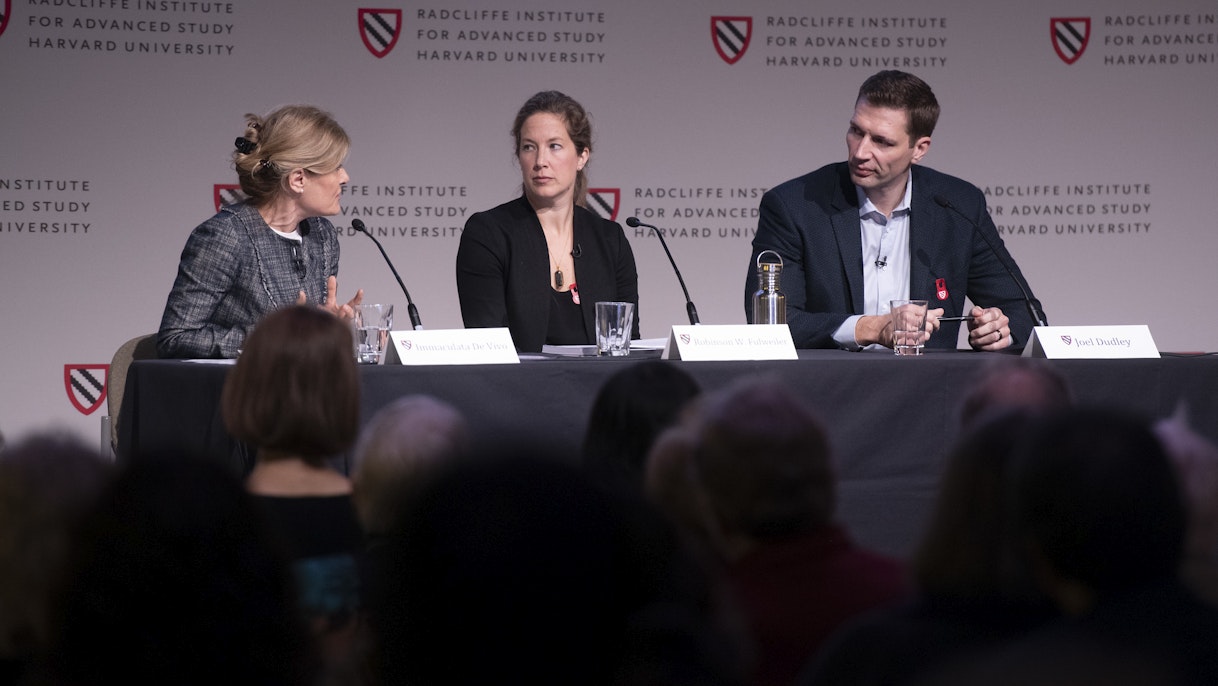
LIFE
Robinson W. Fulweiler, associate professor in the Departments of Earth & Environment and of Biology and director of the Boston University Marine Program, Boston University
Joel Dudley, associate professor of genetics and genomic sciences, associate professor of population health science and policy, associate professor of medicine, and director of the Next Generation Healthcare Institute, Icahn School of Medicine, Mount Sinai
Discussant: Immaculata De Vivo, interim faculty codirector of the science program, Radcliffe Institute for Advanced Study; professor of medicine, Harvard Medical School; and professor of epidemiology, Harvard T.H. Chan School of Public Health
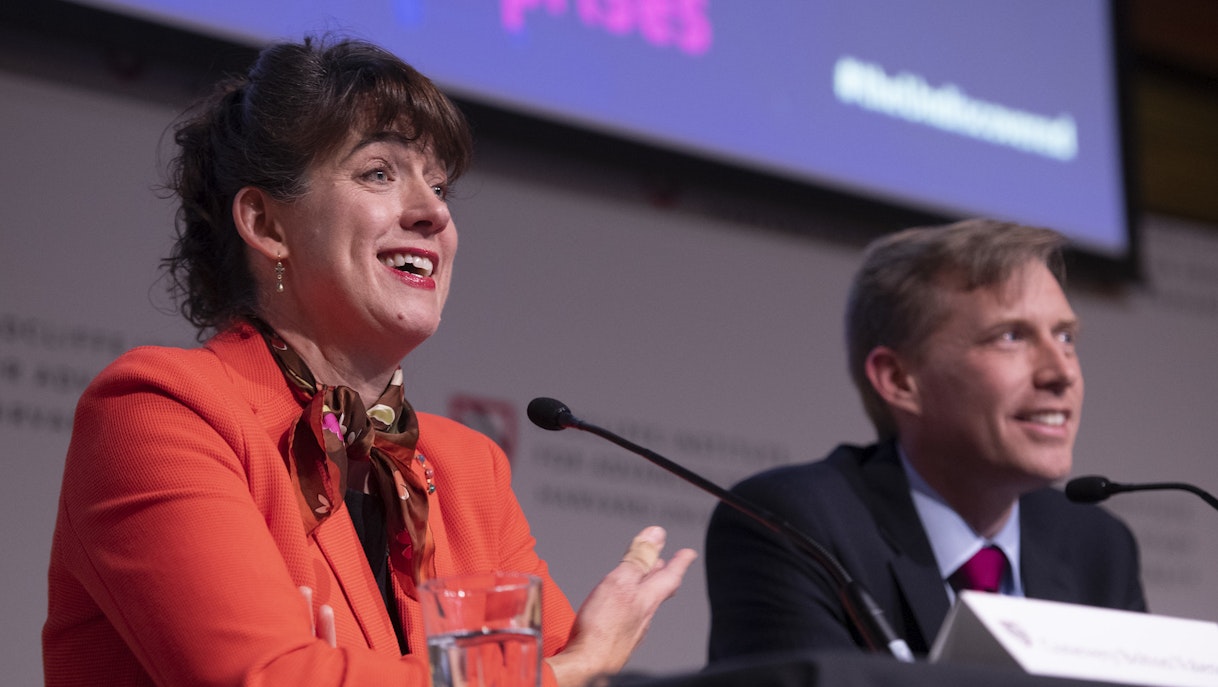
EARTH
Nathan E. Hultman, director of the Center for Global Sustainability and associate professor in the School of Public Policy, University of Maryland
Discussant: Conevery Bolton Valencius, professor of history, Boston College

SPACE
Laura Kreidberg, junior fellow, Harvard Society of Fellows, and ITC Fellow, Harvard-Smithsonian Center for Astrophysics
Lisa Kaltenegger, associate professor in astronomy and director of the Carl Sagan Institute, Cornell University
Discussant: David Charbonneau, professor of astronomy and Harvard College Professor, Faculty of Arts and Sciences, Harvard University
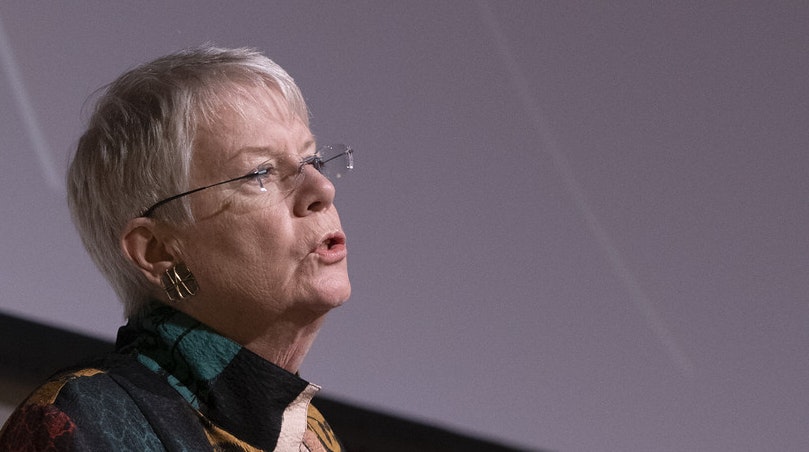
Afternoon Keynote by Jill Tarter
AFTERNOON KEYNOTE
Jill Tarter, chair emeritus for SETI Research, SETI Institute
CLOSING REMARKS
Alyssa Goodman, faculty codirector of the science program, Radcliffe Institute for Advanced Study, and Robert Wheeler Willson Professor of Applied Astronomy, Harvard Faculty of Arts and Sciences
READING: “METHOD VS. MUSE”
Ceili Magnus, senior, Barnstable High School
